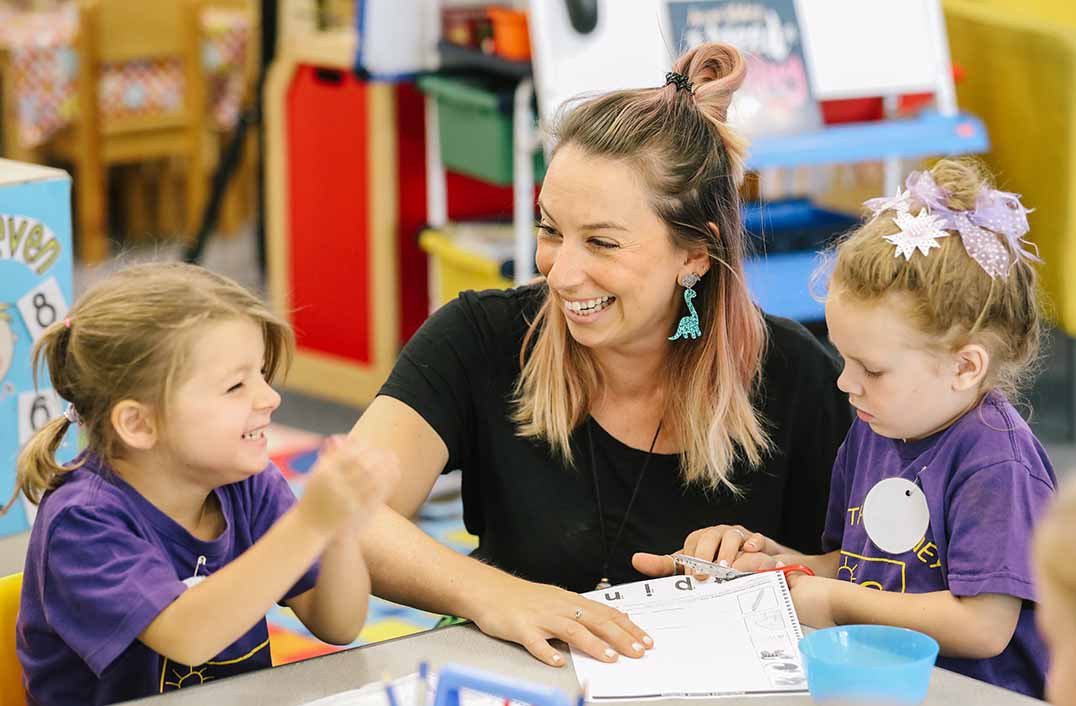Parents have an important role to play in supporting their children’s well-being. As parents, you are understandably concerned for your children and how they are coping with the COVID-19 pandemic, and the impact that it is having on almost every aspect of their lives.
Children of all ages will have their own way of coping with what is happening at the moment. Here are some tips and ideas on how you can help support your child.
Pay close attention to your own feelings
Paying attention and naming your own feelings of stress and anxiety can help you manage these feelings and reduce their effect on your children. Continue to practice self-care strategies, looking after yourself physically and mentally. If you feel overwhelmed seek support from family, friends, or from support services. For further information, see the Self-Care for Parents During COVID-19 tip sheet.
Practice patience
Disruption to routines can lead to an escalation in challenging behaviour and meltdowns. Practice patience and calm. Pause, take a deep breath, and calm yourself before you respond. Then help your child to be calm. Stay close and provide comfort to help them feel safe. Show your child you understand how they are feeling. Make sure you connect emotionally with your child before you correct any behaviour or start any discussions about how to solve the problem. When you are patient, calm, and consistent responding to difficult behaviour you can then help your child to regulate their own feelings and behaviour.
Acknowledge and support emotions
Acknowledge and support your children in processing their concerns and feelings. Remain calm and reassuring. Consider in advance the range of emotions that you could expect from your children at their varying ages. Identify appropriate ways of responding to different situations.
Tune in to how your children are feeling throughout the day and offer quiet times or breaks as needed. Find appropriate ways for children to express their feelings. This may include conversation, music, song, dance, writing, drawing or other activities. For further information, see the Navigating Difficult Emotions During COVID-19 tip sheet.

Provide information
Provide age appropriate and accurate information to your children while limiting news and social media as appropriate. Make sure the information that they receive is accurate and true. Share with your children what you are doing to keep them safe. Help them have a sense of control by teaching proactive strategies that they can do to stay healthy, such as handwashing, exercising, and eating well.
Provide structure and consistency
Children thrive with a sense of structure and stability. Wherever possible provide consistency with daily routines. While some changes are inevitable, having consistent routines can foster a sense of safety in children. Help them create their own timetable for the day and give them some responsibilities in the house. This can help children to feel needed and that they are an important part of the household.
Use this time to create new routines that promote family time and wellbeing practices. This may include going for family walks, prayer, practicing calming skills together, playing board games, or creating your own family way of showing affection. Quality time with family will help children to cope better with challenges and will enhance their sense of confidence and security.
Stay connected with friends
Help your children to think of ways to maintain their friendships and social connections. This may include writing letters, writing emails, scheduling times to connect via video calls or through on-line games. It will also be important to help your children stay connected with family.
Practice the Fruits of the Spirit
The Fruits of the Spirit are nine qualities encouraged to live in accordance with the Holy Spirit. These are Love, Joy, Peace, Patience, Kindness, Goodness, Faithfulness, Gentleness, and Self-Control. Think of ways that you and your children can show the fruits of the spirit in your home and community. This may be small things such as, showing kindness to a sibling, participating in community actions such as chalking rainbows on the footpath, or larger acts such supporting people who are isolated or alone.
Seek additional help if needed
If you or your family require practical or emotional support, reach out proactively. You can seek help from
Vinnie’s Assistance 1300 794 054
headtohealth.gov.au
for a range of mental health resources
Lifeline 13 11 14 (24 hours)

